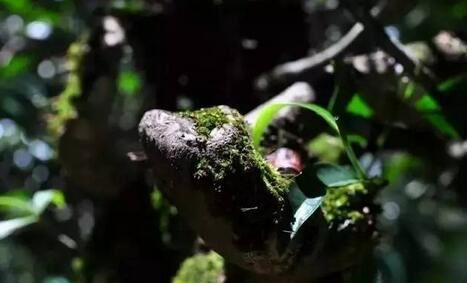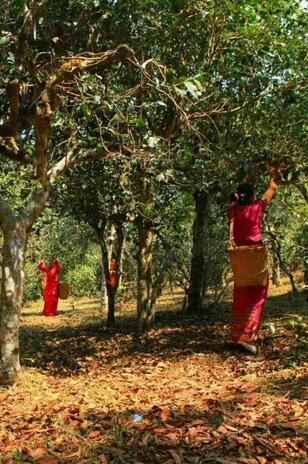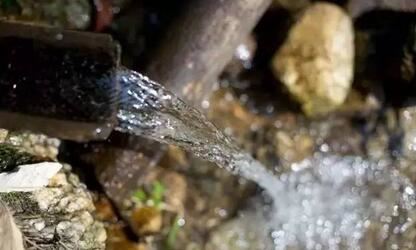Unique Climate
Due to Tea's photophilic and warm-loving nature, as well as its preference for warmth and humidity, it can be said that the abundance or scarcity of sunlight and rain determines the type of tea. The average temperature in regions of Yunnan suitable for tea tree growth is between 15-22°C, with an average humidity of over 85%. Thus, the unique climate characterized by alternating sunshine, cloud cover, and rainfall creates the special character of Yunnan pu'er tea.

Unique Soil
Tea trees grow best in slightly acidic, moist humus soil. Humus soil not only retains adequate moisture but also contains natural organic fertilizers and the three essential elements for plant life—”nitrogen,” “phosphorus,” and “potassium.” These three elements must dissolve in a slightly acidic, moist soil environment before they can be absorbed by the tea tree and participate in the tree's growth and the oxidation, decomposition, and recombination processes of various organic compounds. Yunnan has yellow and red soils that are slightly acidic, with volcanic ash and basalt properties, rich in trace elements, and their naturally formed ratios are most suitable for the growth of large-leaved tree species.

Unique Trace Element Effect
Trace elements are essential conditions for biological growth. A deficiency in trace elements can cause many diseases, such as heart disease, liver disease, arteriosclerosis, delayed intellectual development, and weakened immunity. Trace elements are also key factors in determining the type and quality of tea. Yunnan's soil is rich in organic matter and trace elements and has a naturally balanced ratio, which creates pu'er tea's unique character. Moreover, these trace elements have been chelated into water-soluble substances by the tea tree, making them more easily absorbed by the human body when brewed.


Unique Traditional Processing Method
The method of processing pu'er tea is primitive and ancient. Local farmers pick the tea leaves, lightly stir-fry them at low temperatures until soft, knead them, and then dry them in the sun. This traditional processing method preserves the activity of enzymes in proteins and organic compounds within the pu'er tea. During aging, the organic compounds in the tea undergo oxidation, hydrolysis, differentiation, and synthesis to form new soluble substances in the tea. These substances are highly soluble, non-irritating to the stomach, and easily absorbed. Therefore, pu'er tea has practical effects such as quenching thirst, relieving fatigue, invigorating the mind, aiding digestion, and reducing greasiness, which have been confirmed and accepted through numerous experiments and cases. In this sense, pu'er tea can be described as “like tea yet not quite tea, like medicine yet not quite medicine,” unique in the world.

Unique “Tea Ancestor”
In the end, pu'er tea is originally the only tea in the world. It is widely known that Yunnan is the birthplace of tea, with fossils dating back millions of years having been unearthed, and thousand-year-old tea trees are commonplace. Today, its descendants have diversified, each with their own unique characteristics. However, tracing back to their origins, all teas worldwide come from Yunnan. This uniqueness is the most fundamental uniqueness of pu'er tea.